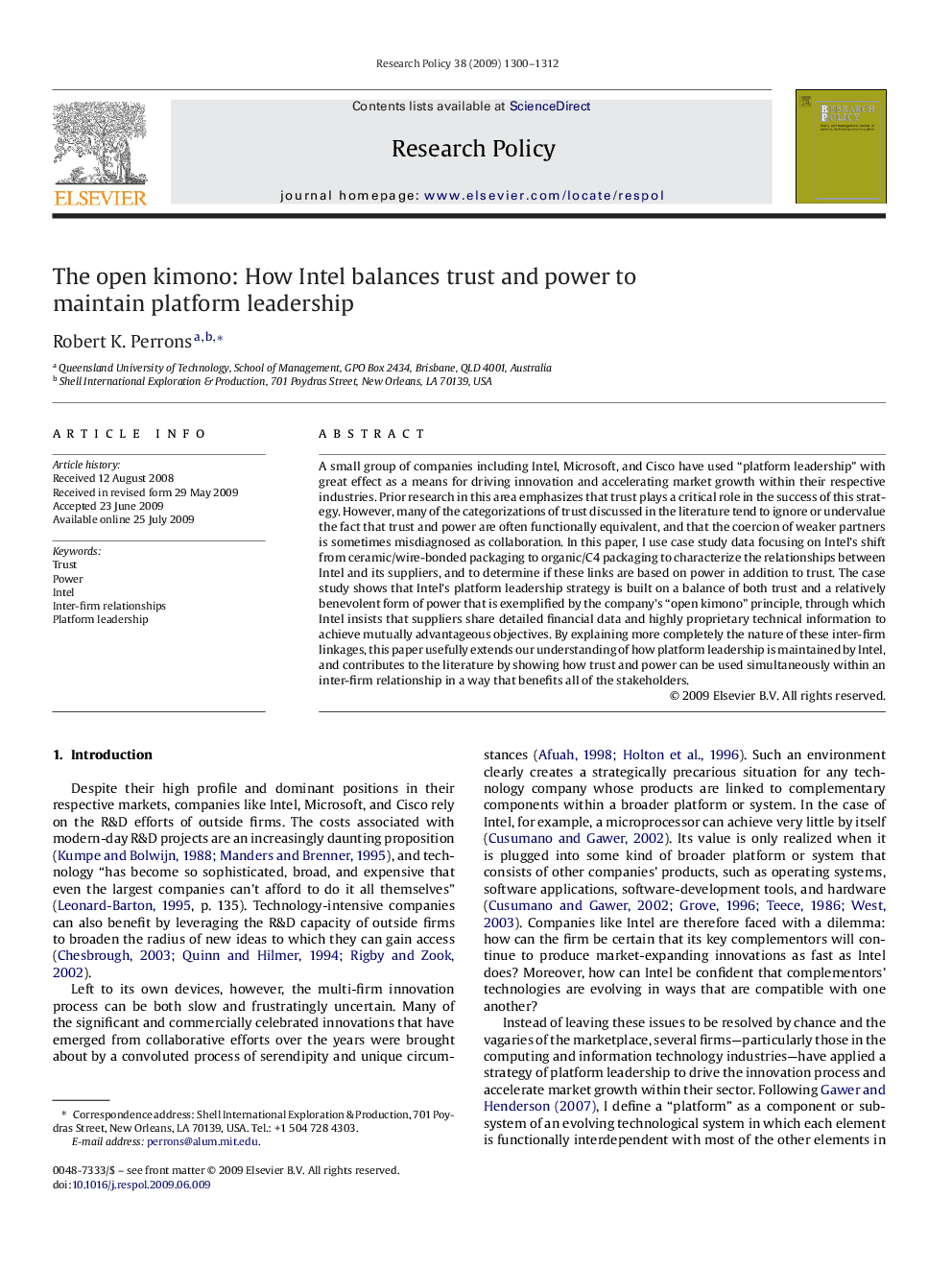| Article ID | Journal | Published Year | Pages | File Type |
|---|---|---|---|---|
| 984629 | Research Policy | 2009 | 13 Pages |
A small group of companies including Intel, Microsoft, and Cisco have used “platform leadership” with great effect as a means for driving innovation and accelerating market growth within their respective industries. Prior research in this area emphasizes that trust plays a critical role in the success of this strategy. However, many of the categorizations of trust discussed in the literature tend to ignore or undervalue the fact that trust and power are often functionally equivalent, and that the coercion of weaker partners is sometimes misdiagnosed as collaboration. In this paper, I use case study data focusing on Intel's shift from ceramic/wire-bonded packaging to organic/C4 packaging to characterize the relationships between Intel and its suppliers, and to determine if these links are based on power in addition to trust. The case study shows that Intel's platform leadership strategy is built on a balance of both trust and a relatively benevolent form of power that is exemplified by the company's “open kimono” principle, through which Intel insists that suppliers share detailed financial data and highly proprietary technical information to achieve mutually advantageous objectives. By explaining more completely the nature of these inter-firm linkages, this paper usefully extends our understanding of how platform leadership is maintained by Intel, and contributes to the literature by showing how trust and power can be used simultaneously within an inter-firm relationship in a way that benefits all of the stakeholders.
